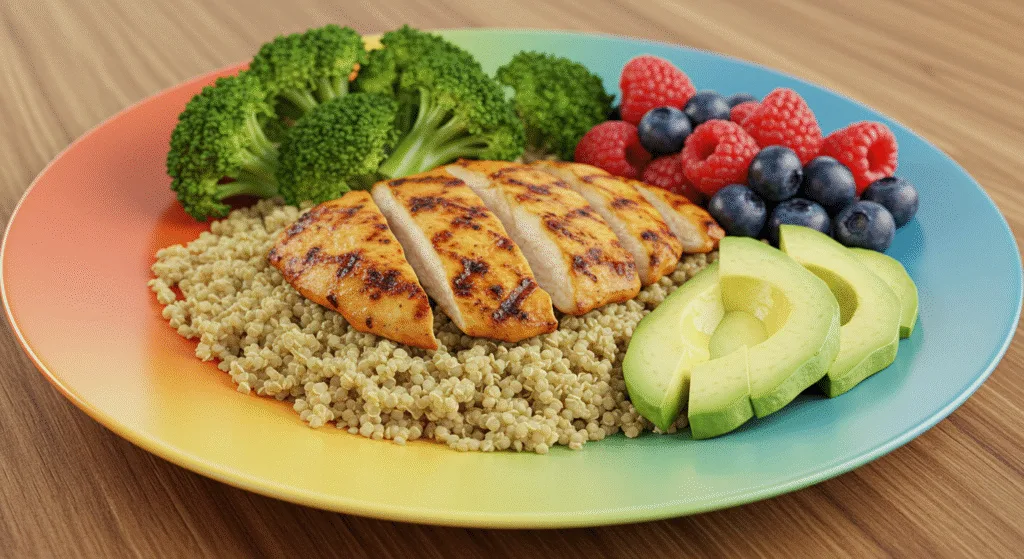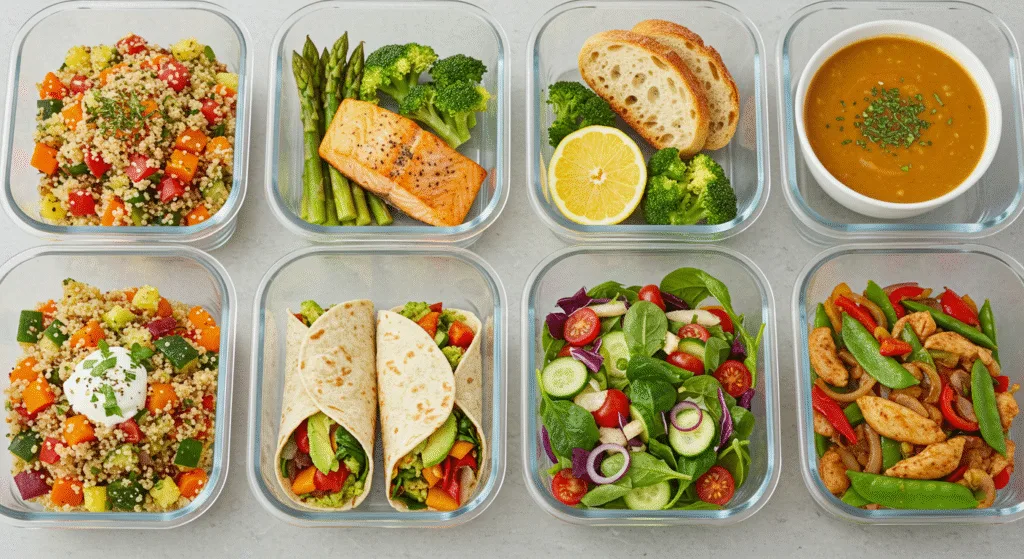Discover effective weight loss and dieting strategies. Learn science-backed methods for sustainable results. Start your journey today!
Introduction
Weight loss and dieting are among the most searched topics globally, as millions seek ways to improve health, boost confidence, and reduce disease risks. However, not all approaches are equal. Many diets fail because they’re unsustainable or based on myths rather than science.
In this comprehensive guide, you’ll learn about evidence-based weight loss strategies, common pitfalls to avoid, and how to maintain results long-term.
Understanding Weight Loss
Weight loss occurs when calories burned exceed calories consumed —a state known as a calorie deficit . While simple in theory, many factors influence this equation, including:
Dieting plays a central role in managing calorie intake, but it’s not just about cutting food—it’s about choosing nutrient-rich options that support overall health.
Popular Dieting Methods
1. Low-Carb Diets
Low-carbohydrate diets like keto and Atkins have gained popularity due to their ability to reduce appetite and increase fat burning. They focus on protein, healthy fats, and fiber-rich vegetables.
2. Intermittent Fasting
This approach involves cycling between periods of eating and fasting. Common methods include the 16:8 and 5:2 plans. It helps control calorie intake without strict meal planning.
3. Mediterranean Diet
Often ranked as one of the healthiest diets, it emphasizes whole foods, olive oil, fish, nuts, fruits, and vegetables. It supports heart health and sustainable weight loss.
4. Plant-Based Diets
Whether vegetarian or vegan, plant-based diets can be effective for weight loss when balanced properly. They’re rich in fiber, antioxidants, and low in saturated fats.
The Role of Nutrition in Dieting
A successful diet must provide essential nutrients while maintaining a calorie deficit. Key components include:
- Protein: Keeps you full longer and preserves muscle mass.
- Fiber: Found in fruits, vegetables, and whole grains, it improves digestion and satiety.
- Healthy Fats: Avocados, nuts, and oils support hormone balance and brain function.
- Hydration: Drinking enough water boosts metabolism and reduces hunger.
Avoid processed foods high in sugar and unhealthy fats, as they contribute to weight gain and poor health.
Exercise and Weight Loss
While diet plays the biggest role in weight loss, physical activity is crucial for maintaining results and improving body composition. Combining strength training and cardio helps burn fat and build lean muscle.
Recommended weekly activity:
- 150 minutes of moderate-intensity aerobic exercise
- 2–3 sessions of resistance training
Exercise also boosts mood, energy, and sleep—all vital for long-term success.
Behavioral and Psychological Factors
Successful weight loss isn’t just physical—it’s mental too. Emotional eating, lack of motivation, and unrealistic expectations often lead to failure. Consider these strategies:
- Set SMART goals (Specific, Measurable, Achievable, Relevant, Time-bound)
- Track progress using apps or journals
- Build a support system through friends, family, or online communities
- Practice mindfulness and stress-reduction techniques

Common Myths About Dieting
| Myth | Reality |
| Crash diets work fast and last | They often cause muscle loss and are hard to sustain |
| Carbs make you gain weight | Quality carbs are essential for energy and brain function |
| All fats are bad | Healthy fats are necessary for hormones and cell function |
| Skipping meals helps lose weight | It can slow metabolism and lead to overeating later |
How to Maintain Weight Loss?
Losing weight is only half the battle—keeping it off is where many struggle. Here’s how to succeed:
- Keep up healthy habits even after reaching your goal
- Monitor weight regularly
- Continue eating balanced meals
- Stay active
- Be flexible and adjust as needed
Frequently Asked Questions (FAQs)
Q: What is the fastest way to lose weight?
A: A combination of reduced-calorie dieting and increased physical activity yields the best results. Avoid quick fixes like extreme fasting or laxative use.
Q: Can I target belly fat?
A: Spot reduction isn’t possible. Overall fat loss through diet and exercise will reduce belly fat over time.
Q: Is counting calories necessary?
A: Not always, but it can help track progress and ensure you’re in a calorie deficit.
Q: Are supplements effective?
A: Most weight loss supplements have little evidence behind them. Focus on real food first.
Conclusion
Weight loss and dieting require a personalized, science-based approach. By focusing on nutrition, behavior, and lifestyle, lasting results can be achieved. Whether you’re starting from scratch or looking to break through a plateau, remember: consistency beats intensity every time.
Stay informed, stay patient, and let your journey be guided by facts—not fads.

🥗 Weekly Healthy Weight Loss Diet Chart (7 Days)
✅ Features:
- Balanced macronutrients
- High in fiber and protein
- Low in refined sugar and unhealthy fats
- Includes breakfast, lunch, dinner & snacks
- Suitable for most adults aiming for gradual weight loss
Note: Adjust portions based on your calorie needs (typically 1200–1800 kcal/day for weight loss). Always consult a registered dietitian before starting any diet plan if you have medical conditions or food allergies.
🔹 Day 1 – Monday
| Meal | Menu |
| Breakfast | Oatmeal with skim milk, chia seeds, and sliced banana |
| Mid-Morning Snack | Greek yogurt with berries and a sprinkle of almonds |
| Lunch | Grilled chicken salad with mixed greens, olive oil, and lemon dressing |
| Evening Snack | Handful of walnuts and an apple |
| Dinner | Baked salmon, steamed broccoli, and quinoa |
🔹 Day 2 – Tuesday
| Meal | Menu |
| Breakfast | Scrambled egg whites with spinach and whole grain toast |
| Mid-Morning Snack | Green tea + 5 almonds |
| Lunch | Brown rice, lentils (dal), and sautéed veggies |
| Evening Snack | Cucumber slices with hummus |
| Dinner | Tofu stir-fry with bell peppers, broccoli, and brown rice |
🔹 Day 3 – Wednesday
| Meal | Menu |
| Breakfast | Smoothie (spinach, banana, almond milk, flaxseeds) |
| Mid-Morning Snack | Boiled egg and orange |
| Lunch | Whole wheat wrap with grilled veggies and low-fat paneer |
| Evening Snack | Celery sticks with peanut butter |
| Dinner | Grilled turkey burger (no bun), roasted sweet potato, green beans |
🔹 Day 4 – Thursday
| Meal | Menu |
| Breakfast | Chia pudding made with Greek yogurt and topped with berries |
| Mid-Morning Snack | Herbal tea + handful of pumpkin seeds |
| Lunch | Quinoa salad with chickpeas, cherry tomatoes, and feta cheese |
| Evening Snack | Pear or a small handful of mixed nuts |
| Dinner | Stir-fried shrimp, zucchini noodles, and edamame |
🔹 Day 5 – Friday
| Meal | Menu |
| Breakfast | Multigrain toast with avocado spread and poached egg |
| Mid-Morning Snack | Cottage cheese (paneer) with cucumber slices |
| Lunch | Lentil soup, steamed cauliflower, and a small serving of brown rice |
| Evening Snack | Kiwi fruit or a few dark chocolate squares |
| Dinner | Stuffed bell peppers with lean ground turkey and brown rice |
🔹 Day 6 – Saturday
| Meal | Menu |
| Breakfast | Buckwheat pancakes with a drizzle of honey and fresh strawberries |
| Mid-Morning Snack | Green smoothie (kale, apple, ginger, oat milk) |
| Lunch | Grilled chicken Caesar salad (light dressing, no croutons) |
| Evening Snack | Sliced bell peppers with guacamole |
| Dinner | Baked cod, asparagus, and mashed cauliflower |
🔹 Day 7 – Sunday
| Meal | Menu |
| Breakfast | Veggie omelet (mushrooms, onions, tomatoes) + half an English muffin |
| Mid-Morning Snack | Pineapple chunks with mint |
| Lunch | Chickpea curry with jowar roti or whole wheat chapati |
| Evening Snack | Roasted chickpeas |
| Dinner | Zucchini lasagna (low-carb version) or veggie stir-fry with tofu |
💧 Daily Hydration Tip
- Drink at least 2–3 liters of water per day.
- Replace sugary drinks with herbal teas, infused water, or sparkling water with lemon/mint.
📌 Additional Tips for Success
- Avoid processed foods, sugary drinks, and deep-fried meals.
- Use olive oil or avocado oil instead of refined oils.
- Eat slowly and chew thoroughly to improve digestion and satiety.
- Plan meals ahead to avoid impulsive eating.
- Practice mindful eating—listen to your body’s hunger cues.
Read This Article: The Effects of Social Media on Mental Health